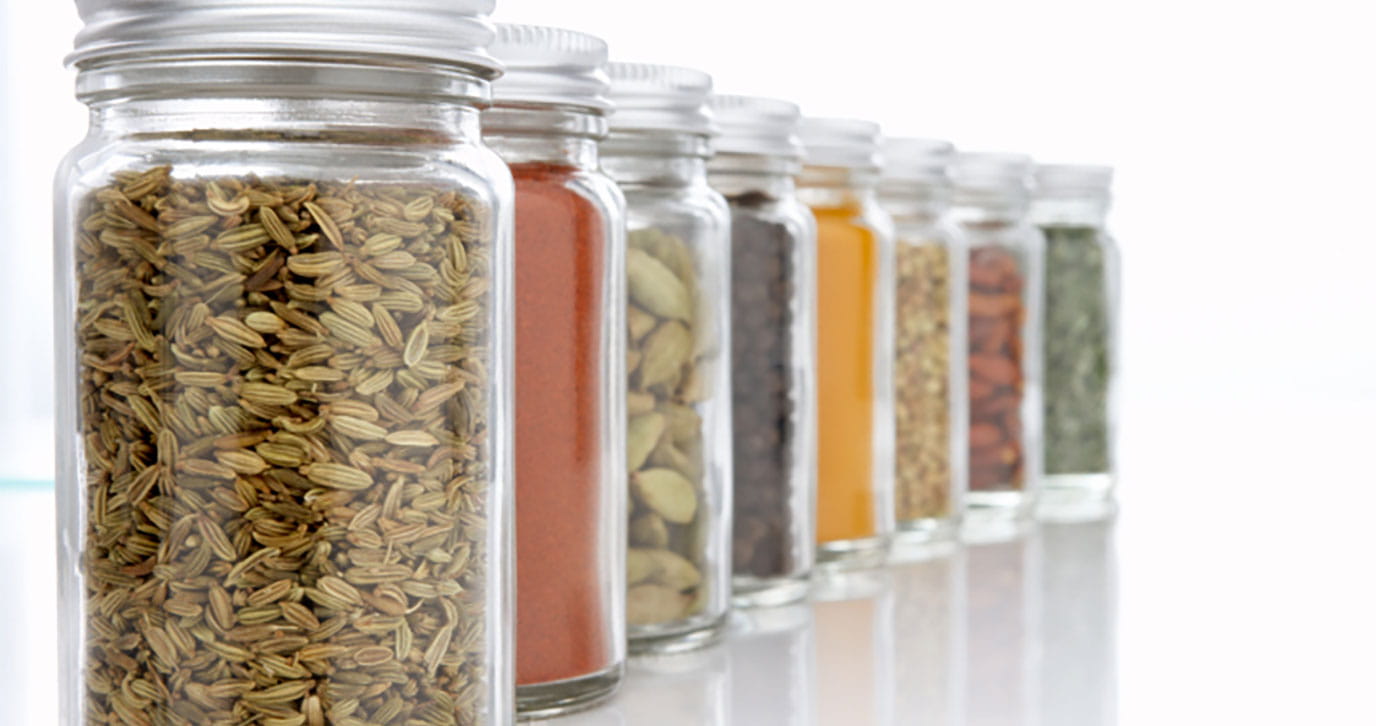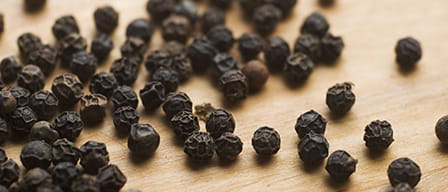
Anise


Black seeds are harvested from the Nigella sativa plant that is native to Africa and Southwest and South Asia. The name Nigella comes from the Latin niger "black", referring to the seed color. The word sativa means "cultivated". Black seed is also known as kalonji in India, habbat-al-barrakah in the Middle East, Hei Zhong Cao Zi in China, and chernushka in Russia. It also is commonly referred to as black cumin or black caraway, potentially misleading terms since the seeds are neither true cumin (Cuminum cyminum) nor true caraway (Carum carvi).
Nigella sativa belongs to the Ranunculaceae family. The plant can grow up to 40 – 70 cm in length with pale blue or white flowers. The fruit consists of capsules containing several small seeds. The major Nigella seed producers are India, Pakistan, Syria, Turkey, Saudi Arabia, Egypt, and Bangladesh.


Black seeds have a long history of use in traditional medicine dating back to ancient Greeks, Romans and Egyptians, and were accorded potent healing power in Islamic texts. As a medicinal plant it has been found as far back as the tomb of Pharoah Tutankhamun, who considered it important for the afterlife, and in ancient sites in Turkey and Africa. Black was widely used in such traditions as Unani, Ayurveda, and Siddha. For example, in Ayurveda, its forms of use included mixing seeds with honey prior to intake, eating black seeds plain, chewing seeds to soothe a toothache, or inhaling vapors from a mix of hot water and black seed oil to alleviate respiratory distress. It was mentioned in several religious texts of the Jews. According to Islamic traditions the prophet Muhammed described the Nigella seed as a remedy for all ailments except death. The seed and its oil were prescribed for numerous conditions including respiratory, nervous, inflammatory and digestive disorders and infections, to name a few (1,2).
The seeds are small and triangular. The fruit consists of large, inflated capsules containing these white colored seeds that, upon rupturing, dry, mature and turn black on exposure to air.

Although the immature seeds have a bitter taste, the mature seed has a flavor described as aromatic, pungent, spicy, fruity, similar to nutmeg.
The inclusion of this spice into culinary dishes varies widely depending on cultural preferences and individual palate, since it may provide an oniony, smokey accent. It also has been used as a pepper substitute in some culinary dishes.
Both seed and oil are frequent ingredients in numerous foods and spice blends, especially in the Middle East and India. Along with fenugreek, cumin, fennel and black mustard seeds it is a component of the Bengali spice blend panch phoron. The Ethiopian spice mixture berbere contains black seed, cardamom, coriander, fenugreek, smoked paprika and chili. In India it is a part of the spice blend used to make Punjabi gajar ka anchar, a carrot and mango pickles. In baked goods black seed can be sprinkled on Indian naan bread, Indian flatbread masala paratha, Turkish flat bread, and the Algerian bread Khoubz b’ Sanoudj. Gizha is a Palestinian dense black paste of roasted seeds that is used in making breads and cakes such as the bitter and sweet gizha pie. The oil can be drizzled on salads, added to dressings and vegetables and included in curries, stews and stir-fry dishes. The seeds also may be added to coffee and tea and in Ethiopia they flavor alcoholic beverages. In Greece and Cyprus a popular cheese called halloumi is made from fresh sheep and goat milk fried or grilled with black seeds.
Our understanding of how black seed and other spices and herbs potentially benefit health is growing. Using diverse spices and herbs as seasonings has been shown to unlock new flavors and tastes that enhance our enjoyment of numerous foods and vegetables, while reducing our intake of added saturated fats, sugar and sodium. Explore ways to incorporate various spices and herbs to create healthy meals and expand your culinary experiences. Learn about recommendations for building a balanced and healthy diet.

Anise

Basil

Bay Leaf

Black Pepper

Black Seed

Cardamom
